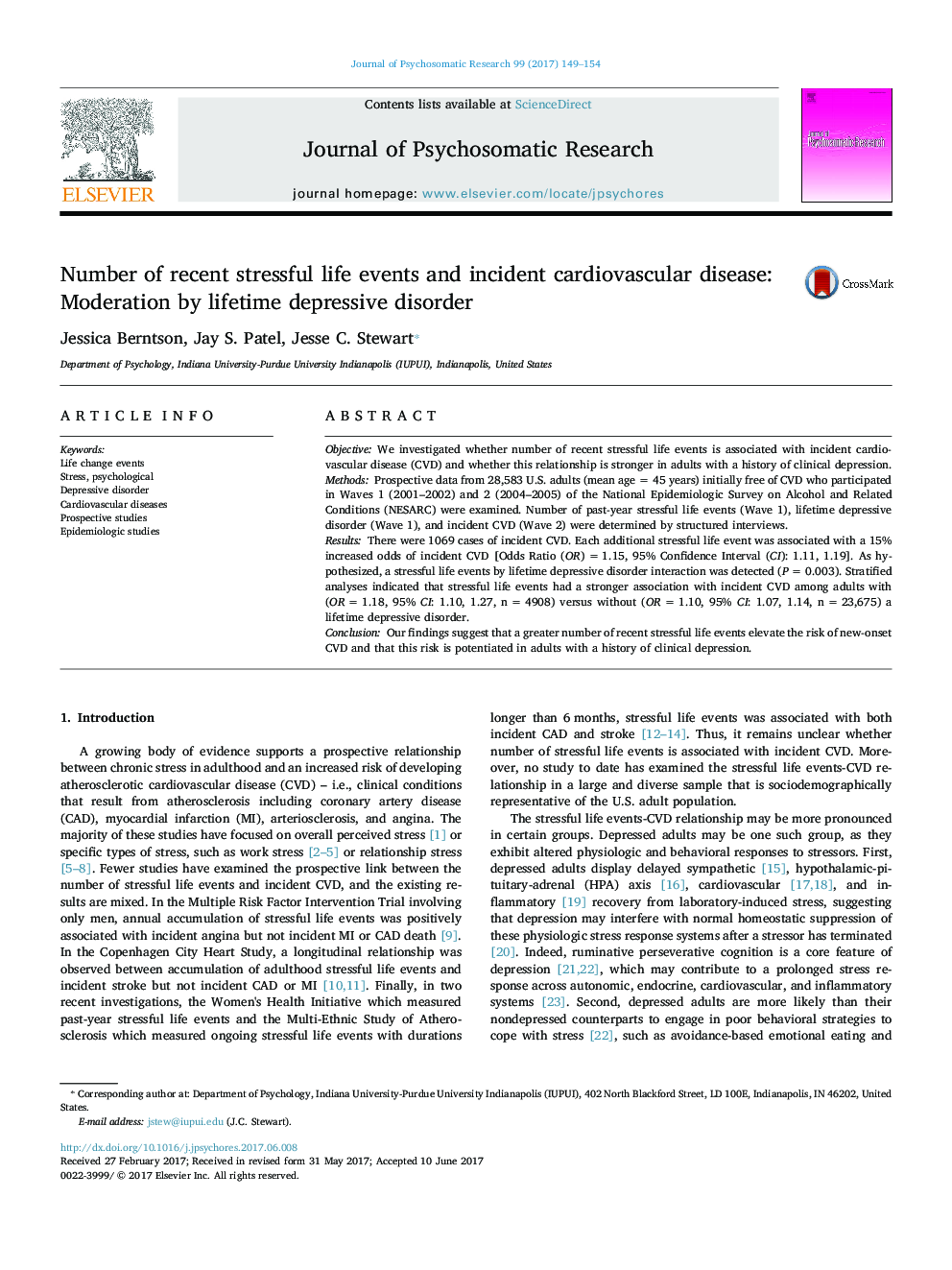| Article ID | Journal | Published Year | Pages | File Type |
|---|---|---|---|---|
| 5045897 | Journal of Psychosomatic Research | 2017 | 6 Pages |
â¢In a sample of 28,583 U.S. adults, we examined whether number of stressful life events is associated with incident CVD.â¢We also examined whether the stressful life events - CVD relationship is stronger in adults with a history of depression.â¢Each additional stressful life event was associated with a 15% increased odds of incident CVD.â¢Stressful life events and CVD had a stronger association among adults with versus without a lifetime depressive disorder.â¢Stressful life events may elevate the risk of new-onset CVD, especially in adults with a history of depression.
ObjectiveWe investigated whether number of recent stressful life events is associated with incident cardiovascular disease (CVD) and whether this relationship is stronger in adults with a history of clinical depression.MethodsProspective data from 28,583 U.S. adults (mean age = 45 years) initially free of CVD who participated in Waves 1 (2001-2002) and 2 (2004-2005) of the National Epidemiologic Survey on Alcohol and Related Conditions (NESARC) were examined. Number of past-year stressful life events (Wave 1), lifetime depressive disorder (Wave 1), and incident CVD (Wave 2) were determined by structured interviews.ResultsThere were 1069 cases of incident CVD. Each additional stressful life event was associated with a 15% increased odds of incident CVD [Odds Ratio (OR) = 1.15, 95% Confidence Interval (CI): 1.11, 1.19]. As hypothesized, a stressful life events by lifetime depressive disorder interaction was detected (P = 0.003). Stratified analyses indicated that stressful life events had a stronger association with incident CVD among adults with (OR = 1.18, 95% CI: 1.10, 1.27, n = 4908) versus without (OR = 1.10, 95% CI: 1.07, 1.14, n = 23,675) a lifetime depressive disorder.ConclusionOur findings suggest that a greater number of recent stressful life events elevate the risk of new-onset CVD and that this risk is potentiated in adults with a history of clinical depression.
